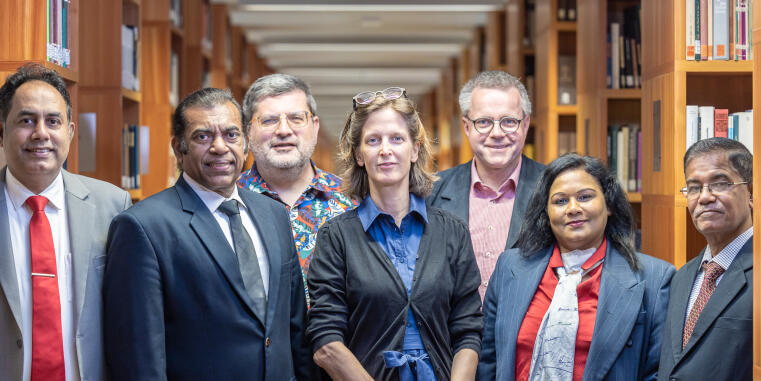

From a technical point of view, access to library content seems to have never been as easy as it is today with the possibilities of digitisation and the widespread availability of internet connections, even on mobile phones. Whereas, in the pre-digital age, access to large libraries was often the privilege of the few, simply because of distance and the often limited capacity of reading rooms, today even the most specialised specialist literature can be accessed easily and conveniently wherever there is an internet connection.
Of course, the vision of easy access to books and knowledge is not so easy to realise. The reason for this is not so much technical or financial limitations, which do exist, but above all legal frameworks that make easy digital access to library content difficult and in many cases impossible.
The technology of digitisation and the infrastructure of the Internet are global phenomena that are more or less the same in every country in the world. This is not the case, however, for the legal framework, especially copyright. It is interesting to compare these frameworks in different countries.
A comparison between a country in the Global North and a country in the Global South is particularly interesting. The rich countries of the Global North tend to have a well-developed library system that is easily accessible to large parts of the population. In these countries, digital access to library content is therefore less of an increase in participation than a gain in convenience and speed. In contrast, libraries in countries of the global south tend to be few in number and poorly equipped. Here, access to digital libraries can be a real enrichment for many people, giving them access to books that were previously unavailable to them on such a large scale. This is all the more true as mobile internet and cell phone ownership tend to be quite widespread in countries of the global south.
It is questionable, however, whether a suitable legal framework can be found in the countries of the Global South for the expected great gain in access to library content through the possibilities of digitisation. A comparative perspective with the countries of the Global North, some of which already have considerable digital access to library content in their legal systems, is useful here.
The question outlined above is to be analysed in a project with regard to the German and Sri Lankan legal systems. In a first step, different digital access routes to library content will be identified from a library perspective and then analysed in terms of their legal admissibility in the respective legal systems. The findings will then be compared and possible differences identified.
If there are any legal obstacles to digital library provision, as is to be expected in Sri Lanka as a country of the Global South, particularly in view of the opportunities associated with this, the reasons for these obstacles should be analysed. In addition, suggestions will be made from the perspective of library experts as to what the best possible digital provision in Sri Lanka might look like. These proposals can then be analysed in terms of their legal feasibility and concrete reform proposals can be made and discussed with experts from the library sector and the legal profession.
The project outlined here can produce three results: firstly, a systematically formulated compilation of digital access methods to library content; secondly, a legal investigation of the framework conditions for digital access to libraries in Sri Lanka, which does not yet exist in this form; and thirdly, a reform proposal for an access-friendly legal framework for digital library services in Sri Lanka, which can serve as a starting point for a local discussion between legal and library experts.
For the Sri Lankan project partners, the project can provide a link to the debate on appropriate copyright for libraries in the digital age, which has been going on intensively in Germany for over twenty years. For the German project partners, the way in which the Global South reacts legally to the possibilities of digital information provision and the role that legal regulations play in actual user behaviour can be instructive, because the question of the actual control effect of law in digital change, which is supposedly clearly answered in the Global North, is posed anew under different cultural, economic and technical conditions.
Researchers
- Dr. Prathiba Mahanamahewa (Univ. of Colombo, Sri Lanka), Senior Fellow
- Prof. Dr. Nishantha Sampath Punchihewa (Univ. of Colombo, Sri Lanka), Senior Fellow
- Prof. Dr. W. K. M. Mervin Kumara Weerasinghe (Univ. of Kelaniya, Sri Lanka), Senior Fellow
- Dr. Wathsala Athukorala (Univ. of Colombo, Sri Lanka)
- Prof. Dr. Eric Steinhauer (FernUniversiät Hagen/Humboldt-Universität zu Berlin), Non-resident permanent fellow
- Prof. Dr. Katharina de la Durantaye (Freie Universität Berlin)
- Prof. Dr. Reinold Schmücker, Director (Universität Münster)

